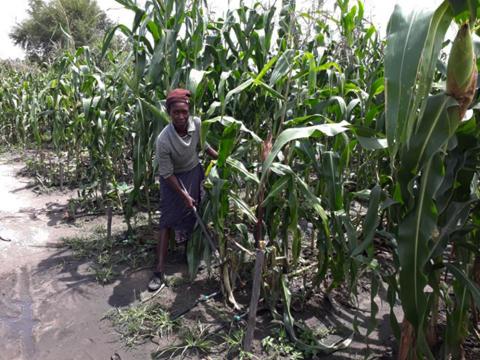Solar-powered drip system brings hope to a vulnerable community in Gwanda

Senzokuhle’s husband died in 2012, and she was left with their three children to look after and fend for. Her husband had no formal employment, he had relied on casual jobs to fend for his family. Now that he was no more, Senzokuhle was struggling to provide for the family, let alone afford to pay school fees for her children.
While other people celebrated the dawn of a new day and hoped for the best, Senzokuhle wished she could spend her life sleeping and forgetting the worries of what they would eat the next day, what her children would wear and where she would hide when her children are sent back from school for not paying school fees.
They say that there is always a little light at the end of the tunnel. The light in Senzokuhle’s tunnel shined brighter and fuelled hope for her and her children when she became part of a group of men and women who established a nutrition garden.
They would plant vegetables for consumption and sell the excess to meet their family needs. Although the garden was helping them earn a living, it was hard to produce enough for their families and also sell because of water shortages. They used to water the garden using water they had fetched got from a nearby river using 20-litre buckets. Crops used to fail because only a few farmers were strong enough to do a couple of trips to and from the river to get water to water the garden. Most garden members had to give up because they could not plant crops throughout the year as they had to rely on rains.
However, life became better for these, men and women when World Vision supported Dema village in Gwanda with a solar-powered pipped water scheme. This helped in increasing the size of the garden, which meant more produce for them which would later generate more income to assist Senzokuhle and other garden members to cater for their families. The installation of a solar-powered watering system and drip irrigation system made it easy for the farmers to grow more crop varieties all year round, without completely relying on the rains.
This was a massive relief for Senzokuhle, who couldn’t hide her joy when we spoke to her.
“I am pleased that we can now grow crops throughout the year. Our families can access fresh vegetables all the time. We can afford three meals a day! I sell my produce to local community members and Gwanda markets. Most important of all, I am now able to pay school fees for my child without challenges. After selling my produce, l use the other income to purchase my farming inputs and the rest for household needs.”